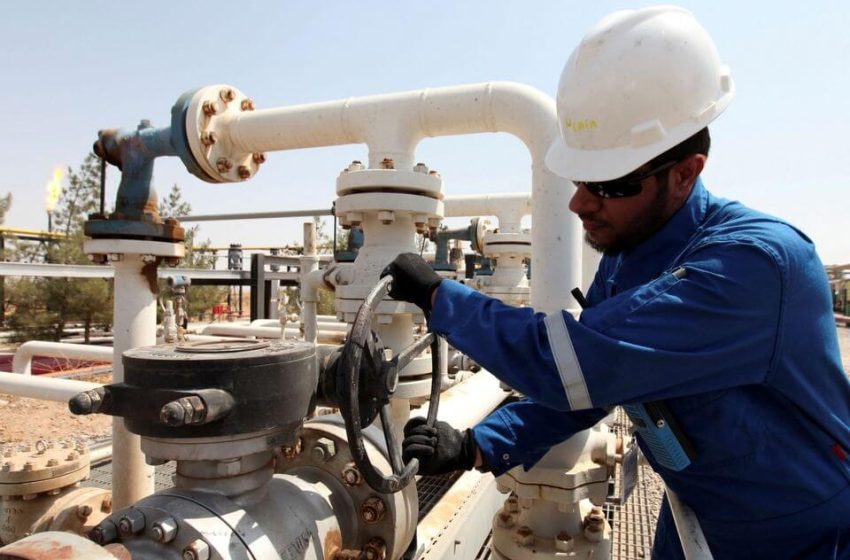Baghdad, Kurdistan take measures to resume oil exports

A worker adjusts a valve of an oil pipe at the Taq Taq oilfield in Erbil, in the Kurdistan region of Iraq. Photo: Reuters
Baghdad (IraqiNews.com) – The federal government in Baghdad and the Kurdistan Regional Government (KRG) cleared up technical issues necessary to resume Northern Iraq’s oil exports through the Turkish port of Ceyhan to international markets, Reuters reported.
On April 4, The Iraqi Prime Minister, Mohammed Shia Al-Suadni, announced that an agreement has been reached to resume oil exports from the Kurdistan region of Iraq.
Iraq was forced to suspend about 450,000 barrels per day of crude exports, or 0.5 percent of global supplies, from the Kurdistan region at the beginning of April following a ruling issued by the International Court of Arbitration of the International Chamber of Commerce to stop exporting oil under the supervision of the regional government to Turkey through Ceyhan.
The ruling issued on March 23 obligated Turkey to pay 1.5 billion USD to Iraq for oil exports from Iraqi Kurdistan through Ceyhan port between 2014 and 2018 without Baghdad’s approval.
Baghdad and Erbil signed a temporary agreement, which included marketing, pricing, and destination, on April 4, to restart northern oil exports, but continued to negotiate on technical issues before engaging with Turkey, Reuters mentioned.
Under the agreement, the State Organization for Marketing of Oil (SOMO) will sign contracts with traders under power of attorney, while KRG crude will be restricted from heading to Asia and priced against Kirkuk official selling prices, Reuters explained.
International oil companies have been invited to Erbil for a meeting with KRG Prime Minister Masrour Barzani on Tuesday morning, Reuters clarified.
Discussions will focus on preparations for resuming exports, terms and conditions for pricing crude oil sales through SOMO, the proposed mechanism for paying international oil firms’ debts and their share of future oil export sales, Reuters added.
Iraq accused Turkey of violating a pipeline agreement dating back to 1973 by allowing the KRG to export oil without Baghdad’s approval during the period from 2014 to 2018.
Another arbitration case also linked to the 1973 pipeline agreement and oil exports from 2018 onwards remains open.
